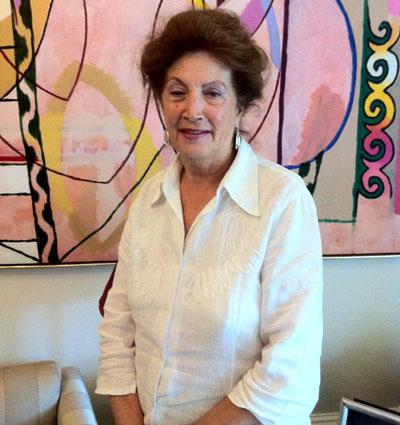When Senator Lucie Pépin began her nursing career in the late 1950s, the landscape for women was fraught with challenge. Contraception in many cases was illegal, and women needed their husbands’ permission to have surgery, or to have surgery performed on their children. In Quebec, where Pépin lived and practised, the pervasive influence of the Catholic Church made the state of women’s rights even more precarious.
After being forced to resign upon getting married (lest other people say that her husband could not take care of her), she started working with Lise Fortier, the first woman gynecologist in Quebec, as a volunteer in 1966. At the time, family-planning clinics were illegal and went against church doctrine in Quebec.
“We opened the first clinic one afternoon a week, and after that it was two afternoons a week, and when it became legal in ’69, I went across the country, from Newfoundland to Victoria, and opened family-planning clinics in all university hospitals,” Pépin recalls. “I had so much fun.”
It was an era that predated universal healthcare, in which it was not uncommon for francophone families to have nine children. Pépin was often present for home deliveries as women could not afford to go to hospitals, despite the risks of bleeding after multiple births.
“That’s really what motivated me; we had to do something,” she says. Church prohibitions; societal conventions that gave women little say in family planning; restrictions against tubal ligations – women had to have had at least four children, be around the age of 40 and have the consent of four doctors (since they were prevented from signing their own surgical authorizations) to be eligible; and the illegality of abortion – all were fights Pépin took on.
“We used to see women come into the hospital, bleeding like hell, and when you were looking at their cervix, it was perforated with knitting needles,” Pépin says. “They had so many kids and they could not carry on. They were taking a vaginal douche with Javex; they were completely burned and they were bleeding, arriving at emergency, and I said, We have to do something about that.”
It didn’t help when the local priest would visit and call out publicly in the halls to patients when he knew they had had an abortion – a practice Pépin put a stop to as head nurse of obstetrics and gynecology at Notre Dame.
From family-planning clinics to fights to allow condom machines on university campuses, Pépin took on Pierre Trudeau under the auspices of the Canadian Advisory Council on the Status of Women.
“I wanted the entrenchment of women’s rights in the Constitution, and he said, ‘Lucie, that’s okay, but I need unanimity between all the premiers,’ and he said, ‘I won’t be able to get that.’ And I said, ‘Oh yes, watch out,’” Pépin says. “I used to meet with women’s groups in every province, to go and see the premier, and at the end, they all said yes to Mr Trudeau. So we had the entrenchment of women’s rights.”
From there, she became involved in legislation against domestic violence and was elected as a Liberal MP from 1984 to 1988, adding childcare to the list of issues she fought for.
In the years that followed, Prime Minister Brian Mulroney appointed Pépin to two royal commissions and later to the appeals division of the National Parole Board. Jean Chrétien appointed her to the Senate in 1997, where she carried on her activism.
With Pépin’s 75th birthday now upon her, the age of mandatory retirement for senators, she looks at the political landscape she leaves behind.
“I wish, first, that there would be more women in politics, because things are changing but not enough,” she says. “Parties will say, We’ll have women, but they don’t give them good ridings. I’ve been fighting since ’84, and things are better, but let’s see.”
Her time on the National Parole Board has given her a perspective on the current government’s law-and-order agenda, as well, in particular the emphasis on longer jail terms.
“At least if you were giving them education, we could save lots of young people [from] going in to prison,” Pépin says. “We’re also too strong because the sentence before you get your parole will be extended, and what they learn in prison, it’s nothing to help them to be in the right place when they come out. For me, let’s say I disagree with the position that the government is taking now.”
Pépin is also concerned by what she sees in the fight for women’s health and for reproductive rights, with some provinces making abortions nearly impossible to access, or with few doctors being trained in the procedure, and the lack of education around safer sex and contraception in many schools.
“I wish that we could have more leadership in that field, because when you go to school now, even secondary, you can’t go and speak to them anymore,” Pépin says. “At least, my God, people should say you can use birth control, something like that – there’s nobody doing that now.”
With her parliamentary career winding down, Pépin plans to keep busy with volunteer work at least three days a week.
“I have to keep busy, otherwise I’ll have a very bad temper,” she says. “I’ve already looked at different associations where I could be involved, and probably at the end of September, I’ll open the door as to where I’ll go and keep my sanity, and be involved. I have so much energy, I think it’ll be great.”


 Why you can trust Xtra
Why you can trust Xtra


